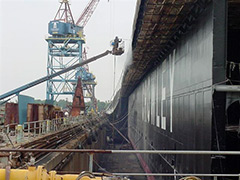Converting Municipal Waste to Renewable Energy Source
Jan 19
The most efficient and effective way to convert municipal waste to energy is to use landfills created for this purpose. These landfills are designed to maximize the production and recovery of the methane gas that is created by decomposing waste in the landfill. Methane gas can be dangerous when it builds up, and some landfills will simply burn off the gas safely, to remove it and keep it from building to dangerous levels. In a waste to energy landfill however, this gas is collected, purified, and then either used or sold to utilities and other businesses. These landfills are designed to make it easier to recover the gas, and encourages the municipal waste to decompose more quickly, producing more methane gas as a result.

Municipal waste to energy is a fantastic way to turn the garbage we discard into a renewable energy source that can help heat and power our homes. Municipal solid waste, also called MSW, can be a big renewable energy source that has other environmental benefits as well. When our garbage is turned into municipal waste energy, the benefits are numerous. There is less garbage to clutter and fill our landfills, so that fewer landfills are needed and less trash is thrown out. Municipal waste to energy programs also lessen the demand for oil and other fossil fuels, because the energy converted from the MSW is used instead of oil or other fossil fuels. There are already many municipal waste to energy facilities located in the United States, and the state of Kentucky generates enough energy from waste to energy facilities to power hundreds of thousands of homes each year.
Municipal waste is a renewable energy source that shows great promise, and all waste to energy facilities follow almost the same procedures when the waste is first received. The waste is sorted, with recyclable materials being set aside. Even tires and many plastics can be turned into energy, but metal cans and other items that can be reused are removed and set aside. At this point, a waste to energy facility that burns the waste will put the materials into the incinerator to burn, so the released energy can be captured in the form of steam. This steam is then used to create electricity.
Municipal waste is an alternative energy source that is renewable, sustainable, and eco-friendly, and this renewable energy source may be the answer to an energy crisis. Your garbage leaves your home as rash and comes back in the form of electricity, while protecting the environment and eliminating the need for oil and other fossil fuels. Metals are removed before municipal waste is converted to energy, and this means mining for metals will be reduced because of recycling and lower demand.
Related Posts
- Anaerobic digestion may sound gross – but it’s part of a new energy source
- Municipal Solid Waste Energy: Society's Double Benefit
- Pros and Cons of Waste Vegetable Oil Economy
- Waste Gasification Plants: Turning Waste into Renewable Fuel Source
- Municipal Waste to Energy Process: Top 10 benefits we can share
Leave a Reply
You must be logged in to post a comment.




